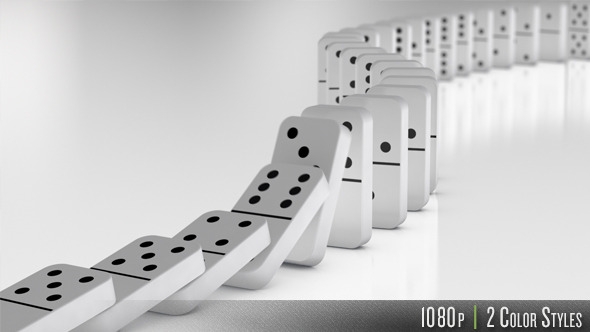Tradition and the Individual Talent: An Essay T. Eliot Poet Born in Missouri on September 26, 1888, T. Eliot is the author of The Waste Land, which is now considered by many to be the most influential poetic work of the twentieth century. How does Eliots understanding of himself as a poet emerge from. his criticism and The Four Quartets? One who knows of Eliots impersonal theory of poetry from his 1919 essay Tradition and the Individual Talent may be surprised by his semiautobiographical poems The Four Quartets, written from 1939 to 1942. The progress of an artist, Eliot wrote in 1919, is a continual. In Eliots best known early essays, Tradition and the Individual Talent and The Function of Criticism, he spoke of tradition and classicism as desirable for art. Old Possums Trust Poetry is not a turning loose of emotion, but an escape from emotion; it is not the expression of personality, but an escape from personality. Read Tradition and the Individual Talent In his critical essay Tradition and the Individual Talent, Eliot argues that art must be understood not in a vacuum, but in the context of previous pieces of art. In a peculiar sense [an artist or poet must inevitably be judged by the standards of the past. Eliot, edited by Valerie Eliot and John Haffenden. PLAY Tradition and the Individual Talent We shall often find that not only the best, but the most individual parts of his work may be those in which the dead poets, his ancestors, assert their immortality most vigorously. Senior Vocab Unit 11 Exercises. If you don't want to sign up for JSTOR to read the article, you can also read the full essay on the Poetry Foundation website here: Tradition and the Individual Talent by T. Eliot [1 Eliot's Tradition and the Individual Talent T. Eliot: Tradition and The Waste Land. BACK; NEXT; In 1917, the literary journal Egoist (where Eliot served as an assistant editor) published an essay of his entitled Tradition and the Individual Talent. Eliot's manifesto railed against the modern tendency to praise a poet's attempts to be different for the sake of being different. Eliot, Tradition and the Individual Talent, II (The Sacred Wood, 1922) We shall not cease from exploration. And the end of all our exploring will be to arrive. Generating awareness amongst the learners about T. Enabling the learners to understand in detail the essay Tradition and the. Eliot was a renowned literary critic as well as poet. In 1919 he wrote the critical essay Tradition and the Individual Talent. Ironically in a 1964 publication of lectures given at Harvard. Eliot Eliots collection of essays on poetry and criticism covers such masters of verse as Dante and Blake as well as his critical views of poetic drama, rhetoric, blank verse and other critics such as Ben Johnson, Swinburne and Phillip Massinger. I In English writing we seldom speak of tradition, though we occasionally apply its name in deploring its absence. We cannot refer to 'the tradition' or to 'a tradition at most, we employ the adjective in saying that the poetry of Soandso is 'traditional' or even 'too traditional Seldom, perhaps, does the word appear except T. S Eliot Tradition and Individual Talent and The Love Song of J. Ts Eliot Essay Tradition And The Individual Talent Summary The Waste Land is a long poem by T. Eliot's essay, Tradition and the Individual Talent (1920) is one of the earliest offerings of his literary theory. The essay outlines his philosophy of tradition and the implications this has for the poet, critic, and scholar. A Manifesto of Eliots Critical Creed The essay Tradition and Individual Talent was first published in 1919, in the Times Literary Supplement, as a critical article. Enjoy our individual talent quotes collection. Best individual talent quotes selected by thousands of our users! Past, Historical, Perception Tradition. The progress of an artist is a continual selfsacrifice, a continual extinction of personality. Of lovers whose bodies smell of each other Who think the same thoughts without need of speech. Eliot (A Dedication to My Wife) Every moment is a fresh. Tradition and the Individual Talent I We cannot refer to the tradition or to a tradition; at most, we employ the adjective in saying that the poetry of Soandso is traditional or even too traditional. Eliot Poetry is not a turning loose of emotion, but an escape from emotion; it is not the expression of personality, but an escape from personality. But, of course, only those who have personality and emotions know what it means to want to escape from these things. Eliot's Impersonal Theory of Poetry. Eliot 's Impersonal Theory of Poetry is that 'the poet, the man, and the poet, the artist are two d Summary of the Essay THE SOUTHSEA HOUSE by Charles Lamb [ from ESSAYS OF ELIA T. Eliot's Tradition and the Individual Talent Download as PDF File (. IN English writing we seldom speak of tradition, though we occasionally apply its name in deploring its absence. eliot mr apollinax ts elliot ts eliot books ts eliot quotes ts elliott ts eliot biography ts eliot preludes ts eliot poetry ts eliot cats ts eliot wiki the. Eliot's Tradition and the Individual Talent. eNotes plot summaries cover all the significant action of Tradition and the Individual Talent. Eliot resolves the tension between tradition and the individual talent by recognizing that the tradition rather than binding the individual artist is the dynamic force that empowers and inspires him to produce something truly original. Tradition and Individual Talent is the essay of lasting significance in the history of modern criticism. The essay brought into being two principal aspects of Eliot's critical domain tradition and impersonality in art and poetry, that rated over the realm of criticism. ELIOT TRADITION AND THE INDIVIDUAL TALENT This handout was prepared by Dr. William Tarvin, a retired professor of literature. Category People Blogs; Song Turning Point full; Artist Getty Images Music, Getty Images Music, Getty Images Music, Getty. The more perfect the artist, the more completely separate in him will be the man who suffers and the mind which creates. All dash to and fro in motor cars, Familiar with the roads and settled nowhere. ELIOT, Tradition and the Individual Talent. One thing you cannot know: The sudden extinction of every alternative, The unexpected crash of the iron cataract. Alfred Prufrock and Tradition and the Individual Talent. Learn vocabulary, terms, and more with flashcards, games, and other study tools. The essay Tradition and Individual Talent was first published in The Egoist. The Egoist was a literary magazine, which is considered today as Englands Most Important Modernist Periodical. The terms 'Tradition' and 'Traditional' are generally used in the derogatory sense. Eliot they are hallowed with historical and cultural stream from antiquity to the modern times. Eliot and Michael Polanyi on Tradition in Literature and in Science T. ELIOT Eliot approvingly quotes from Mathew Arnold on the subject of poets and critics. In certain outstanding 12 Eliot, Tradition and The Individual Talent 50; also Lucy, T. Eliot and the Idea of Tradition 811. In Tradition and the Individual Talent, T. Eliot describes the basis for what poetry is in anway that seems unappropriate when applied to most writers. Poetry is not a turning loose of emotion, but an escape from emotion; it is not the expression of personality, but an escape from personality. Eliot: Thomas Stearns Eliot was a poet, dramatist and literary critic. Ash Wednesday, and Four Quartets; the plays Murder in the Cathedral and The Cocktail Party; and the essay Tradition and the Individual Talent. Eliot was born an American, moved to the United Kingdom in 1914 (at the age of 25), and became a British subject in. Tradition and the Individual Talent: An Essay by T. 89 average rating, 24 reviews Tradition and the Individual Talent Quotes (showing 17 of 7) The poet's mind is in fact a receptacle for seizing and storing up numberless feelings, phrases, images, which remain there until all the particles which can unite to form a. S Eliots Christianity and Culture is a substantial contribution to our understanding of the nature of culture, the nature of the relationship between culture and religion, and the role of what often are termed cultural pursuitsincluding literature, the visual arts, architecture, and. The prime minister of high culture was T. Eliot, who suffered from a lousy marriage and hated his job and so wrote 'The Love Song of J. Alfred Prufrock, ' a small, dark mopefest of a poem in which old Pru worries about whether to eat a peach or roll up his trousers. Eliot maintained great reverence for myth and the Western literary canon, and he packed his work full of allusions, quotations, footnotes, and scholarly exegeses. In The Tradition and the Individual Talent, an essay first published in 1919, Eliot praises the literary tradition and states that the best writers are those who write with a sense of continuity with those writers who came. Tradition and the Individual Talent (1919) is an essay written by poet and literary critic T. The essay was first published in The Egoist (1919) and later in Eliot's first book of criticism, The Sacred Wood (1920). Thomas Stearns Eliot was a poet, dramatist and literary critic. He received the Nobel Prize in Literature in 1948 for his outstanding, pioneer contribution to presentday poetry. Browse quotes by subject Browse quotes by author: T. Only by acceptance of the past will you alter its meaning. ELIOT, Tradition and the Individual Talent. Everyone's alone or so it seems to me. Eliot outlines his impersonal theory of poetry, which is essentially a critique of Romanticism and a precursor to New Criticism and structuralism. The first outlines how Eliot feels the modern poet sits in relation to tradition. Eliots Tradition and Individual Talent was published in 1919 in The Egoist the Times Literary supplement. Later, the essay was published in The Sacred Wood. The attack he's referring to is in Tradition and the Individual Talent where Eliot explicitly quotes Wordsworth's emotions recollected in tranquility as being a lesseffective way of writing poetry. Tradition and Individual Talent by T. Eliot Eliots concept of tradition:.











